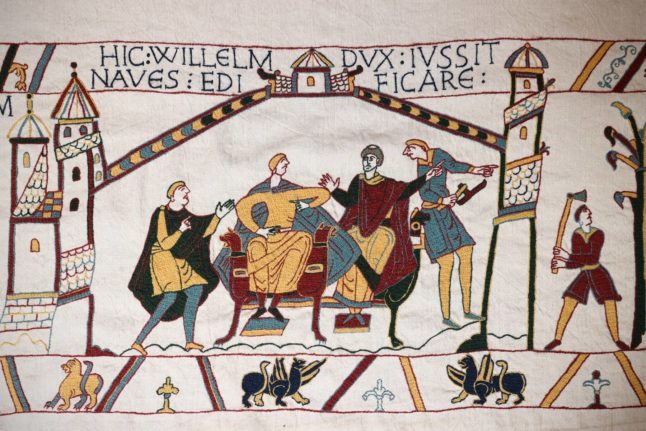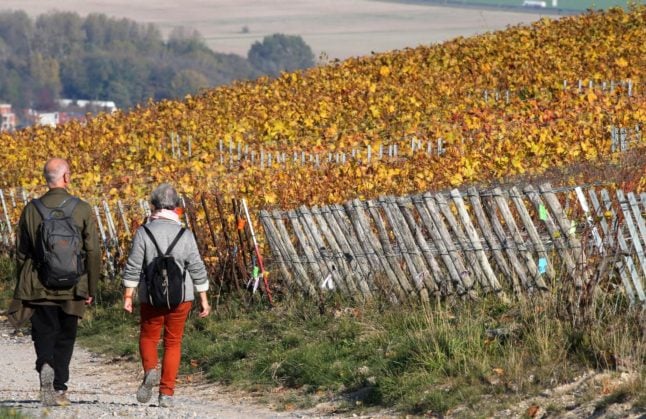Inside France is our weekly look at some of the news, talking points and gossip in France that you might not have heard about. It’s published each Saturday and members can receive it directly to their inbox, by going to their newsletter preferences or adding their email to the sign-up box in this article.
The reckoning
Emmanuel Macron’s government is facing a series of ‘reckonings’ in the next few weeks, and it doesn’t appear happy or confident about any of them.
The first is that the international ratings agencies will – between now and the end of May – deliver their verdicts on whether to downgrade France’s credit rating. While that sounds dull, credit scores have a big impact on interest payments for debt, which is significant if your country happens to have a national debt of 112 percent of its GDP.
It’s reported that infighting has already begun at Bercy, with Finance Minister Bruno Le Maire looking less and less indéboulonnable (indestructible).
The other big test is the European elections at the start of June, where polls are predicting that Macron’s party will lose badly to Marine Le Pen and could even be forced into third place by a revitalised centre-left.
READ ALSO Can foreigners in France vote in the European elections?
European elections are funny things – technically they don’t matter at all to French domestic politics and it’s always risky to try and extrapolate too much from the European vote; turnout is usually low as a lot of people simply don’t care, the issues being voted on have little to do with French domestic politics and some voters see them as a safe way to give a kicking to an unpopular president without having any direct impact on French life.
But for an already weakened Macron who is now approaching his third year of governing without a parliamentary majority, a humiliation at the polls could have serious domestic consequences – The Local’s columnist John Lichfield even predicts that it could cause the fall of Gabriel Attal’s government and fresh parliamentary (not presidential) elections in the autumn.
It would be ironic if Macron – always one of the strongest advocates for the EU project – was to be so severely weakened by a European vote.
The French invaders
I’ve just finished reading a very interesting book ‘La langue anglaise n’existe pas, c’est du français mal pronuncé’ (the English language does not exist, it’s just badly pronounced French) and – with humour – it makes some very interesting points about how English and French became so intertwined.
Author Bernard Cerquiglini also has a very interesting take on the frequent French complaints about the ‘invasion’ of English words into everyday French. He points out that many of these English words are in fact French in origin anyway, saying: “This isn’t an invasion, these are French words that have gone for training in England and that are coming back to us.”
Talking France
We dive into this subject in a little more detail in this week’s Talking France podcast, along with discussing the problem of youth violence in France, the new péage system and where in France are hotspots for second homes. Listen here or on the link below.
Shame
And if any Brits are wondering how their country’s recent political developments are seen in France, then look no further than the leftist French daily Libération, which devoted its front page to the passing of the Rwanda bill with the headline ‘aeroplanes of shame’.
Migrants : les avions de la honte
C'est la une de @Libe ce mercredi
Lire : https://t.co/nj2k4mQp7h pic.twitter.com/QCASCDgAE3— Libération (@libe) April 23, 2024
Emmanuel Macron, as part of a wide-ranging speech at the Sorbonne university on Thursday, also condemned the scheme, saying: “We are creating a geopolitics of cynicism which betrays our values and will build new dependencies, and which will prove completely ineffective.”
Now France’s own treatment of migrants and asylum-seekers is very far from perfect, ditto the behaviour of the EU’s Frontex border agency, but on the UK’s Rwanda plan I believe that Macron and Libération are entirely correct; it is both shameful and ineffective.
Sometimes it can take a friendly neighbour – and France has demonstrated repeatedly that it is a friend to the UK – to tell you unpalatable truths.
Inside France is our weekly look at some of the news, talking points and gossip in France that you might not have heard about. It’s published each Saturday and members can receive it directly to their inbox, by going to their newsletter preferences or adding their email to the sign-up box in this article.




 Please whitelist us to continue reading.
Please whitelist us to continue reading.
Member comments